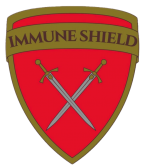Last Updated on April 28, 2021 by ImmuneshieldAdmin
Sterol is one of the most effective natural substances that help keep your body from absorbing too much cholesterol.
Plant sterols are often added to food to heighten its nutritional value. High amounts are present in food such as vegetable oil, seed, cereal, and nut. These natural foods are rich in sterols. They don’t contain the exact level of sterol your body needs daily. Eating them doesn’t significantly impact your body’s HDL Cholesterol, LDL Cholesterol, and triglycerides. It’s where sterol supplements play a big part.
Apart from being processed as supplements, sterols are also used as medicine. A study showed that it could cure Hypercholesterolemia (otherwise known as high blood cholesterol) and prevent Cardiovascular Diseases.
While these supplements are good in lowering your LDL, known as “bad” cholesterol, the experts confirmed that they don’t affect your HDL “good” cholesterol and triglyceride.
Daily Sterol Amount Your Body Needs
According to nutritionists, 2 grams or 2,000mg should be taken every day. This lowers your LDL-C by 5 to 105. To achieve this, go for food containing sterols together with sterol supplements.
How Sterols Act in Your Metabolism
Intake of sterol supplements added to food rich in sterols will help push the LDL cholesterol out from the micelles of your small intestine. This way, cholesterol and several other fat-soluble nutrients are absorbed.
Your body then will absorb less LDL cholesterol. It reacts by maximizing self-controlled synthesis. A 2-3 gram regular daily intake will minimize the bad cholesterol level in your plasma by around 10%.
Take note that partaking more than the required 2-3 grams of sterol will not increase the 10% it reduces. Efficient consumption of sterol supplements or any food containing sterols may only reduce your body absorption and processing of the other vitamins your body requires, such as B-carotene. Beta Carotene is the orange, red, or vivid yellow pigments naturally found in food such as carrots, squash, cantaloupes, apricots, and so on.
Your body converts B-carotene into Vitamin A (Retinol), which plays an important role in cell growth and maintaining healthy body organs such as kidneys, lungs, and heart.
Sterols Side Effects
Sterols are known not to have side effects, specifically short-term. However, there are no reports from individuals taking supplements for decades regarding long-term side effects.
Sterols During Pregnancy
Sterols are safe for pregnant women. It doesn’t pose any risks to the baby’s health or congenital disabilities.
How Much Do Sterol Supplements Cost?
Covered by your insurance or not, sterol supplements are cost-effective. A bottle of sterol supplement that contains 800mg of 120 tablets lasting for 4 months starts with $20 up to $39.
It is inexpensive compared to other cholesterol-lowering supplements, for instance, Statin.
Sterol Supplements Interaction with Other Drugs
Sterol Supplements aren’t known to have interaction with other drugs. A trusted source claimed that it even gave impressive results when combined with Statins. Further research is still implemented if the combination of sterols statin will lower the risk of heart attack, stroke, and other cardiovascular problems.
Also, don’t confuse sterols with beta-sitosterol supplements. The latter is only one type of plant sterol. Thus, they have their specific uses. Same as with the sitostanol, don’t confuse it for sterols as sitostanol is plant stanol.
Conclusion
Before purchasing cholesterol-lowering supplements or medications, you should consult your doctor.
If you wish to take sterol supplements and statins together, let your doctor know first. Although for decades of use, no evidence has proven that it is dangerous. In rare cases, however, allergic reactions may occur like any type of medication.
Questions? Contact us!
